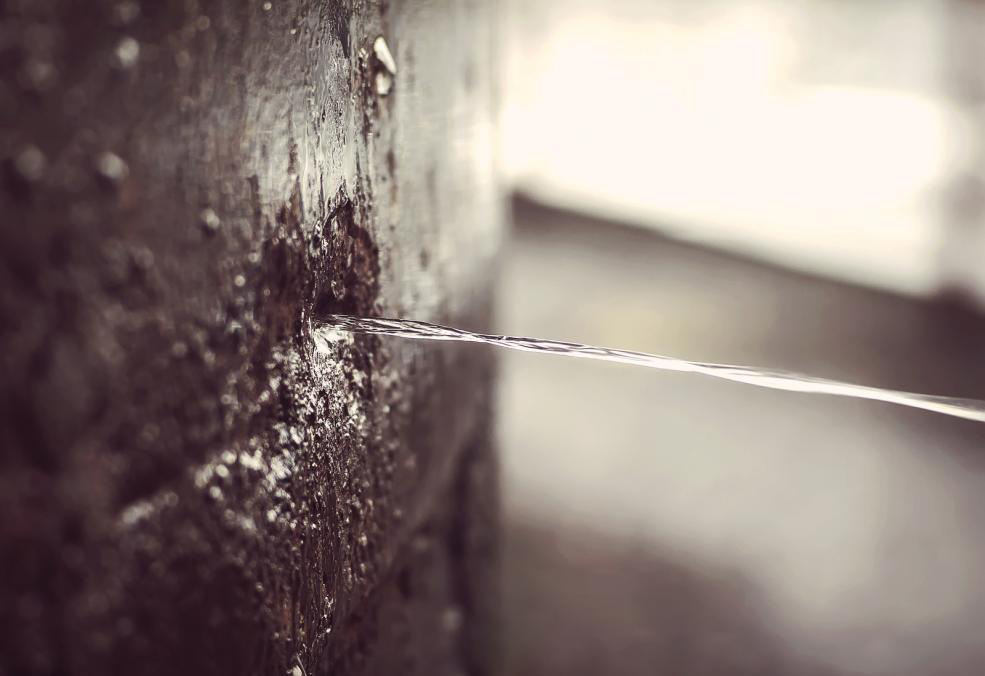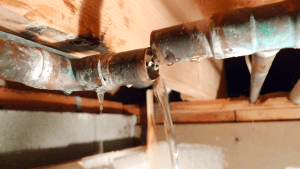What are your thoughts about Locating water leaks?

Early discovery of dripping water lines can minimize a potential calamity. Some little water leakages may not be noticeable.
1. Check Out the Water Meter
Every house has a water meter. Inspecting it is a guaranteed manner in which aids you discover leaks. For starters, turn off all the water resources. Make sure no person will certainly purge, use the faucet, shower, run the washing device or dishwashing machine. From there, most likely to the meter and also watch if it will certainly transform. Since no one is utilizing it, there must be no motions. If it moves, that indicates a fast-moving leakage. Likewise, if you spot no changes, wait an hour or two as well as inspect back once again. This means you might have a slow leakage that can also be underground.
2. Inspect Water Consumption
If you detect abrupt modifications, despite your consumption being the same, it implies that you have leaks in your plumbing system. A sudden spike in your costs shows a fast-moving leakage.
At the same time, a consistent increase on a monthly basis, despite having the very same routines, shows you have a slow-moving leakage that's also slowly intensifying. Call a plumber to completely check your home, specifically if you feel a cozy area on your floor with piping underneath.
3. Do a Food Coloring Examination
30% comes from commodes when it comes to water intake. Test to see if they are running correctly. Drop flecks of food color in the container as well as wait 10 minutes. If the color somehow infiltrates your dish during that time without flushing, there's a leakage between the tank as well as bowl.
4. Asses Outside Lines
Don't fail to remember to check your outside water lines also. Test spigots by affixing a yard hose. Must water permeate out of the connection, you have a loose rubber gasket. Change this and make sure all links are tight. If you've got an automatic sprinkler, it will assist get it properly analyzed as well as kept annually. One tiny leak can squander tons of water as well as increase your water costs.
5. Examine the circumstance and check
Homeowners must make it a routine to inspect under the sink counters as well as even inside cabinets for any bad odor or mold and mildew development. These 2 warnings suggest a leakage so punctual interest is needed. Doing routine inspections, even bi-annually, can conserve you from a significant issue.
Examine for discolorations and also compromising as the majority of devices as well as pipelines have a life span. If you suspect leaking water lines in your plumbing system, do not wait for it to escalate.
Early discovery of leaking water lines can alleviate a potential catastrophe. Some little water leaks might not be visible. Inspecting it is a proven way that assists you uncover leaks. One small leakage can lose tons of water as well as increase your water bill.
If you presume dripping water lines in your plumbing system, don't wait for it to intensify.
5 Signs that Your Home Has a Hidden Leak
Your water bill is unusually high without explanation
Generally, your water bill tends to stay consistent throughout the year as long as the same number of people live in your household year round. The bill might be higher during certain times of the year, such as summer, when your lawn may require more watering than it does in cooler months. However, if you notice a rise in your water bill that you can’t explain, it’s an indicator that there’s a hidden leak somewhere in your home.
You hear running water
One of the biggest signs that you have a water leak is the sound of rushing water when no plumbing fixtures are on and when no water-using appliances are running. If you hear running water in your walls when no water is being used anywhere in your home, locate your home’s main water shut-off valve, shut off your water supply, and contact a plumber at once.
Your home smells musty
Hidden leaks often occur in dark spaces, such as behind walls or under carpeting. Incidentally, darkness and moisture can create an ideal breeding environment for mold or mildew. If you start to smell mildew or the scent of rotting wood or stagnant water around your home, it’s a fair bet that a leak is the culprit.
You find wet spots around your home
The wet spots usually show up as moist areas in your carpeting. If your home has a basement level, puddles on the floor could indicate a slab leak. Outside, unexplainable puddles or lush, green patches in your yard often mean that there’s a leak in your sewer line or main water line.
You have stains, bubbles, or condensation on your walls/ceiling
Stains or condensation on your walls or ceiling are both major signs of a hidden leak. Also, drywall (AKA. sheetrock) is very absorbent, and as it takes on more water from a leak behind a wall, it will start to bubble, swell, or warp. If you see this happening in your home, don’t wait to contact a plumber before the water damage spreads.
https://www.ezflowplumbingaz.com/blog/2019/june/5-signs-that-your-home-has-a-hidden-leak/

We were shown that article about Hacks to detect leaks through an associate on another domain. For those who liked our blog post if you please don't forget to share it. Bless you for your time. Please pay a visit to our site back soon.
Overflow? Seek assistance.